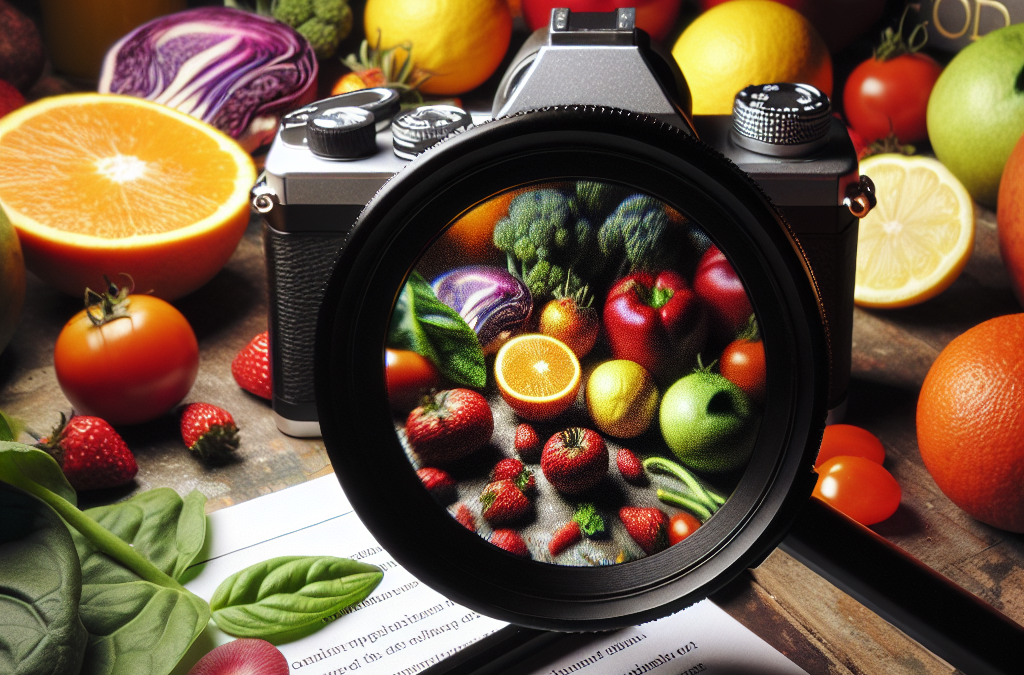Understanding Phytochemicals
What Are Phytochemicals?
Phytochemicals are these amazing compounds found in plants that give them their color, flavor, and disease resistance. They’re not essential nutrients like vitamins or minerals, but boy, do they pack a punch when it comes to promoting health! From my own experience, I’ve learned that incorporating a variety of phytochemicals into my diet makes a world of difference in how I feel and function daily.
These compounds can be categorized into several classes, including flavonoids, carotenoids, and glucosinolates. Each class has its unique benefits, making it so important to eat a rainbow of fruits and veggies. Everyone gets excited about colors on their plate, but this isn’t just for looks – there’s real science backing it!
Whether we’re talking berries rich in flavonoids or greens loaded with glucosinolates, diversifying your food intake is a tasty way to ensure you’re getting all these precious phytochemicals. Trust me, it’s worth exploring the colorful world of plants!
Health Benefits of Phytochemicals
Antioxidant Properties
One of the coolest things about phytochemicals is their antioxidant properties. They help combat oxidative stress and inflammation in our bodies, which is a huge benefit for overall health. My go-to antioxidant-rich snack? Blueberries! They’re delicious and full of compounds that help protect our cells.
These antioxidants play a crucial role in preventing chronic diseases like heart disease and cancer. I’ve noticed that since I started prioritizing foods high in phytonutrients, I’ve felt rejuvenated and more energetic. It’s incredible how something from nature can influence our well-being!
Don’t underestimate the power of simple foods. Rather than grabbing processed snacks, I now reach for those vibrant fruits and veggies. Making this switch has been not only easy but super rewarding!
Phytochemicals and Disease Prevention
Impact on Cancer
Phytochemicals have come under scrutiny for their potential impact on cancer prevention. Some studies suggest a diet rich in these compounds could lower the risk of certain types of cancers. I always feel more confident about my meal choices when I know they’re working at the cellular level!
For instance, compounds found in cruciferous vegetables like broccoli and kale contain glucosinolates, which may have cancer-fighting properties. It’s fascinating how a simple veggie can turn into a warrior against serious illnesses! Honestly, once I discovered this, I couldn’t get enough of them.
Integrating a variety of these foods into my meals—think colorful salads or hearty stir-fries—has become a routine for me. It feels good to know that what I eat has the potential to be preventive medicine.
Phytochemicals in Everyday Foods
Incorporating into Your Diet
The beauty of phytochemicals is that they’re all around us in everyday foods. Fruits, vegetables, nuts, and whole grains are all fantastic sources. I love mixing and matching these in my meals; it keeps things exciting and delicious!
Get Certified Organic Whole Food Nutrition – Nutrient Dense Supplement
I often start my mornings with a smoothie packed with spinach, bananas, and berries. Not only does it taste great, but I just know it’s flooding my body with those essential plant compounds. It’s like I’m giving my body a little dose of magic every day!
Furthermore, exploring new recipes that highlight these foods has been a fun adventure. Cooking with seasonal ingredients not only helps me eat more phytochemicals, but it puts me in tune with nature. If you haven’t done this yet, give it a shot—you might just find a new favorite dish!
The Future of Phytochemicals Research
Emerging Trends
The realm of phytochemicals is constantly evolving, and it’s thrilling to follow along with the research. Scientists are continuously discovering new compounds and revealing how they function within our bodies. I often find myself keeping an eye on new studies that highlight exciting breakthroughs!
As we learn more about the benefits of phytochemicals, folks are starting to understand their importance in dietary recommendations. I’m hopeful that we’ll see more emphasis on healthy plant-based foods in our health guidelines. It’s about time these powerhouse compounds get the attention they deserve!
I believe that knowledge leads to better choices; so as this information grows, I’m excited about adapting my diet even more to embrace these elements. Plus, I just love being part of a growing community that prioritizes health through natural means.
FAQ
1. What are phytochemicals and where can I find them?
Phytochemicals are plant compounds beneficial to health, found in fruits, veggies, nuts, and whole grains. They add color and flavor to our food, and you can find them in a wide range of plant-based foods!
2. How do phytochemicals help in disease prevention?
Phytochemicals help to combat oxidative stress and inflammation, potentially reducing the risk of chronic diseases, including cancer and heart disease.
3. Can I get enough phytochemicals from my diet?
Absolutely! Eating a varied diet rich in colorful fruits and vegetables is a tasty way to ensure you’re getting a good mix of phytochemicals.
4. Are all phytochemicals equally beneficial?
No, different phytochemicals have varying effects on health. It’s best to consume a diverse range to get the maximum benefits!
5. How can I incorporate more phytochemicals into my meals?
Start by adding more fruits and vegetables to your diet—try smoothies, salads, or roasted veggies! Experiment with new recipes and seasonal produce for variety.





